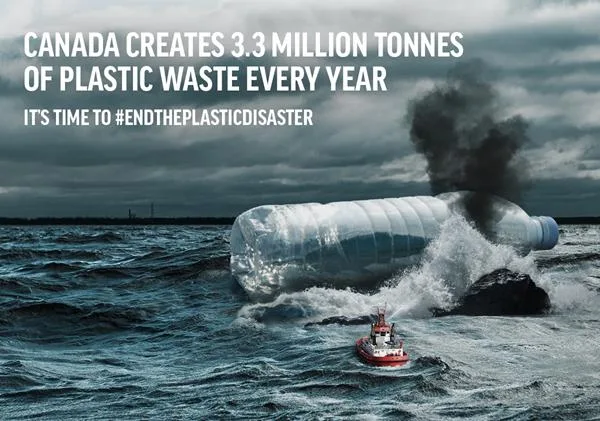Gatineau – Canadians are concerned about plastics littering beaches, parks, streets, shorelines, and other places they value. It is time to stop the harmful impacts of plastic pollution on nature and wildlife. The Government of Canada is taking ambitious action to reduce plastic pollution through a comprehensive approach that protects the environment, conserves biodiversity, and strengthens the economy. As part of its broader commitment to move toward zero plastic waste, the Government of Canada is consulting on:
- A regulatory framework that serves as the starting point for the proposed Recycled Content and Labelling for Plastic Products Regulations.
- A technical paper that outlines the reporting requirements for the federal plastics registry.
The Government of Canada is continuing to work with governments, stakeholders, and Canadians to bring forward these new measures to prevent plastic pollution and improve how plastics are made, used, and managed.
Canadians who are concerned about misinformation and greenwashing want to make informed decisions about the products they buy. Today, too many plastic products that Canadians buy that are labelled with the chasing-arrows symbol or labelled “biodegradable” cannot, in fact, be recycled or composted in local waste management systems.
New mandatory labelling rules for recyclability and compostability would help Canadians make informed decisions on what to buy and how to properly dispose of products at their end of life. The rules would also improve the quality of materials entering recycling and composting facilities in Canada. Accurate labelling would help protect Canada’s environment by preventing or minimizing the creation of new plastic pollution and waste.
The proposed rules would prohibit the use of the chasing-arrows symbol and other recyclability claims on plastic packaging and single-use plastics unless 80 percent of Canadians in a province or territory have access to recycling systems that accept, sort, and re-process these plastics. They would also prohibit the use of terms such as “degradable” or “biodegradable” in the labelling of plastic packaging and single-use items, and set minimum standards for products to be labelled compostable.
The new proposed requirements for minimum recycled content in certain types of plastic packaging would help support stronger and more reliable end markets for recycled plastics. This will drive improvements to recycling systems and product design, reduce greenhouse gas emissions, and promote a circular economy for plastics that minimizes plastic pollution and the associated harm to the environment.
To achieve Zero Plastic Waste by 2030, we need to be able to track plastics in the Canadian economy. That’s why the Government of Canada is committed to establishing a federal plastics registry that would require annual reporting of plastics placed on the Canadian market and how these products are managed at the end of their lives. The registry would also collect and publish data for Canadians on the entire lifecycle of plastics in Canada. A draft information-gathering notice for the federal plastics registry is targeted for publication and public comment before the end of the year.
Stakeholders, provincial, territorial, and local governments, and Canadians are invited to review the regulatory framework and the technical document and provide feedback before May 18, 2023.
The Government plans to publish the proposed Recycled Content and Labelling for Plastic Products Regulations later this year.
“Plastics play an important role in the everyday lives of Canadians; however, the way plastic waste is managed in Canada is a growing concern we all share. We must find a way to keep plastics out of the environment. That means requiring minimum recycled content in certain types of plastic packaging and providing Canadians with clearer labelling and better transparency, to help people better understand what they are buying and determine whether those plastics can be properly recycled in their community. Canadians would also see whether producers are effectively collecting and recycling the plastics they place on the market. Together, these tools will help move Canada toward zero plastic waste.” – Steven Guilbeault, Minister of Environment and Climate Change








